Peter Smith's Blog, page 68
April 5, 2019
Frege: A Philosophical Biography
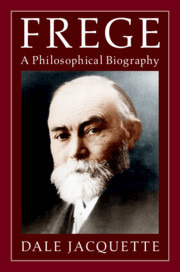 Another new book from CUP, this time Frege: A Philosophical Biography by the late Dale Jacquette.
Another new book from CUP, this time Frege: A Philosophical Biography by the late Dale Jacquette.
I was looking forward to reading this, but I fear that it is going to be hard work, because Jacquette’s prose is (it has to be said) very longwinded and laboured. In the pages I have read so far, the text could — with no exaggeration — have been reduced in length by half, with no loss of content and with considerable gain for the reader. Just for this reason, wading through some 640(!) pages of this is not an entirely happy prospect.
And dipping into some later pages hasn’t made me particularly confident that this is going to be philosophically very insightful either. But we shall see. I would certainly like to learn more about Frege’s mathematical background and early working context, and it looks as if Jacquette has done a lot of homework and has an amount to say about this. I’ll report back!
The post Frege: A Philosophical Biography appeared first on Logic Matters.
April 3, 2019
Taking leave of Broad …
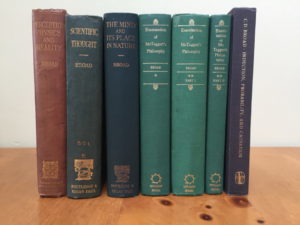 Of the great Cambridge philosophers in the first half of the last century, C.D. Broad surely remains the most underrated. Partly, I’m sure, that’s to do with his terrific clarity and his good sense (leaving aside that odd interest in psychical research inherited from Sidgwick). There are no theses to be written untangling his obscurities or trying to make sense of apparently dotty views. Read, for example, that remarkable passage from An Examination of McTaggart’s Philosophy that was reprinted in the old Feigl and Sellars reader as ‘The “nature” of a continuant’ which discusses dispositions, essences and natural kinds. This still strikes us as first-rate philosophy. And — read by so many graduate students in the 1950s and 60s — surely sowed some important seeds in the later revival of metaphysics.
Of the great Cambridge philosophers in the first half of the last century, C.D. Broad surely remains the most underrated. Partly, I’m sure, that’s to do with his terrific clarity and his good sense (leaving aside that odd interest in psychical research inherited from Sidgwick). There are no theses to be written untangling his obscurities or trying to make sense of apparently dotty views. Read, for example, that remarkable passage from An Examination of McTaggart’s Philosophy that was reprinted in the old Feigl and Sellars reader as ‘The “nature” of a continuant’ which discusses dispositions, essences and natural kinds. This still strikes us as first-rate philosophy. And — read by so many graduate students in the 1950s and 60s — surely sowed some important seeds in the later revival of metaphysics.
I wrote a shortish encyclopedia article once on Broad as an act of Cambridge piety, and was asked if I’d be interested in writing a much longer piece for the Stanford Encyclopedia. But the occasion wasn’t right, and the time has now passed for me pick up that interest again. I’ve too many other things I’d still like to tackle.
So it has come to this. Faced with the perennial problem of where to shelve books as they mysteriously keep accumulating around the house (I am not the only guilty party here) it is time to acknowledge with regret that Broad is another author I will never return to, and so I need to pass on the handful of his books that I have kept up to now. There they are, in decent condition. They might like to keep each other company for a while yet — so any suggestions for a good home?
The post Taking leave of Broad … appeared first on Logic Matters.
April 2, 2019
IFL2: Chapters on propositional natural deduction, again
This is embarrassingly like Mrs May bringing back her Brexit deal for the n-th time, slightly changed …
But here we go again. This is a slightly revised version of the draft chapters on propositional natural deduction for the second edition of IFL2. (Exercises to be added, which will fill some remaining gaps, like noting the equivalence of DN and Classical Reductio, given the other rules, or dealing with biconditionals.)
To repeat what I have said before, one advantage about basing an intro logic book on trees (as in IFL1) is that people don’t get very exercised about how a tree system should be developed. By contrast, people get decidedly heated about the best form of natural deduction to adopt. But there’s no pleasing everyone!
What I propose is a standard enough Fitch-style system — more standard indeed than in the previous version. I have backtracked from two (connected) deviations in an earlier version, persuaded by the reactions of some — not least David Makinson — that deviating from the straight and narrow path was unwise. I had been minded, in particular, to treat the absurdity sign in natural deduction more in the spirit of an exclamation mark rather than as a wff in its own right (compare the sign used to close off branches in a Smullyan-style tree proof). I still think there are good reasons for doing this — see for example Neil Tennant’s discussion in this paper. However, there are reasons on the other side, and — on further reflection — I do think that there are trumping pedagogic reasons for sticking to a standard presentation in a first-level text book.
So, I hope that these chapters are now in a stable state, at least in terms of approach and detailed shape. But all comments (other than variants on “you have written the wrong book!”), all corrections, and even at this late stage all suggestions for improvement will of course still be very gratefully received, as always.
The post IFL2: Chapters on propositional natural deduction, again appeared first on Logic Matters.
April 1, 2019
Proof Complexity
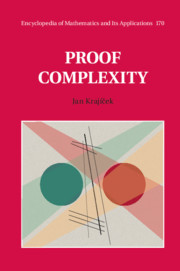 Here is another new logic book from CUP, Proof Complexity by Jan Krajíček.
Here is another new logic book from CUP, Proof Complexity by Jan Krajíček.
This is a rather weighty (and very pricey) tome by a distinguished author in a weighty (and distinguished) series. Maybe it is not the place to start if you are new to the area! — but, dipping in, this does look full of interest if you already know some of the issues and themes.
Surely a book, then, to order for your university library. But you can judge for yourself — for the author has (at least for the moment) provided a link to a PDF of a late version of the book here. And there are related materials elsewhere on his website.
The post Proof Complexity appeared first on Logic Matters.
March 31, 2019
Joseph Haydn — born this day, 1732
For a few minutes distraction from Brexit woes, and to mark Haydn’s birthday — and heaven knows how much his music has been a life-saver in the last few years — here is the wonderful Doric Quartet at the Wigmore, playing the Adagio of his Op 20, No. 6 Quartet.
The post Joseph Haydn — born this day, 1732 appeared first on Logic Matters.
March 2, 2019
IFL2: Chapters on propositional natural deduction
Thanks to the kindness of strangers — not to mention some friends and relations (special thanks to The Daughter) — I have an improved version of the four chapters on propositional natural deduction for IFL2. Here they are. (Exercises to be added, which will fill some gaps, like noting the equivalence of DN and Classical Reductio, given the other rules, or dealing with biconditionals.)
One advantage about basing an intro logic book on trees (as in IFL1) is that people don’t get very exercised about how a tree system should be developed. By contrast, people get decidedly heated about the best form of natural deduction to adopt. So I’m probably not going to satisfy even half of those who urged me to go for natural deduction in the second edition. But there’s no pleasing everyone! What I propose is a standard enough Fitch-style system, with one deviation — the v-Elim rule is a Fitchian version of the liberalized rule recommended for Gentzen systems by Neil Tennant. That way we get disjunctive syllogism without relying on explosion. Which has always seemed more “natural” to me.
All comments (other than variants on “you have written the wrong book!”) and all corrections will of course be very gratefully received, as always.
The post IFL2: Chapters on propositional natural deduction appeared first on Logic Matters.
March 1, 2019
Monteverdi, Sì dolce è’l tormento
To distract, for five minutes, from Brexit and other troubles, Lea Desandre and Thibault Cauvin — Monteverdi, Sì dolce è’l tormento.
The post Monteverdi, Sì dolce è’l tormento appeared first on Logic Matters.
February 28, 2019
An Invitation to Model Theory
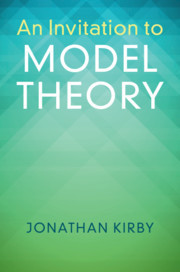 [Updated] CUP have just emailed me information about this new book, coming out in March, An Invitation to Model Theory, by Jonathan Kirby.
[Updated] CUP have just emailed me information about this new book, coming out in March, An Invitation to Model Theory, by Jonathan Kirby.
The contents list and the description of the aim of the book look very promising: “[T]raditional introductions to model theory assume a graduate-level background of the reader. In this innovative textbook, Jonathan Kirby brings model theory to an undergraduate audience. The highlights of basic model theory are illustrated through examples from specific structures familiar from undergraduate mathematics …”.
Daniel Nagase notes that there is currently a late draft linked at Kirby’s webpage. That link might not survive the actual publication of the book, so if you want to download to take a look at the book, hurry, hurry, while stocks last!
The post An Invitation to Model Theory appeared first on Logic Matters.
February 27, 2019
IFL2: Table of Contents
I am posting here the detailed section-by-section Table of Contents of the first parts of IFL2.
Chapters 1 to 7 are introductory (informal notions of validity, proof, counterexample, etc.) Chapters 8 to 18 introduce the notion of formal PL languages, tautological entailment, the material conditional, etc. Chapters 19 to 22 introduce a natural deduction system for PL inferences. The detailed ToC gives a pretty good idea, I think, of what the chapters cover.
I won’t post all those chapters here in this blog (in part for copyright reasons, not wanting to upset CUP). I will however probably post the full ND chapters for comment when I’ve had another look at them. But drop me an email if you would be interesting in seeing all these chapters and perhaps commenting on (some of) them — under the usual rules, i.e. the chapters aren’t for further circulation. The book has already been much improved thanks to the kindness of strangers; but I’m sure there are more improvements to make!
The post IFL2: Table of Contents appeared first on Logic Matters.
February 26, 2019
Seven books: Anton Chekhov
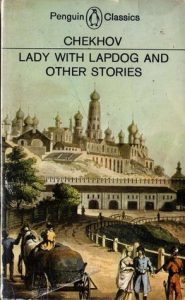 Once upon a very long time ago, there were — as well as the usual commercial cinemas — no less than three cinemas in Cambridge showing foreign and/or older films. There was the lovely small Arts Cinema in the middle of town; out along Mill Road there was the Kinema; and then there was the huge Rex Cinema in Magrath Avenue. The last two were very run down and had seen much better days. But they would, in term time in my student days, each show two programmes a week, each programme showing two films — often in mini-seasons, say of Garbo’s films, or Eisenstein’s films, or classic westerns, or the then-new French nouvelle vague. I and my friends saw a lot of films. And the seasons would repeat too for new generations of students. I must have seen Jules et Jim five or six times if I saw it once.
Once upon a very long time ago, there were — as well as the usual commercial cinemas — no less than three cinemas in Cambridge showing foreign and/or older films. There was the lovely small Arts Cinema in the middle of town; out along Mill Road there was the Kinema; and then there was the huge Rex Cinema in Magrath Avenue. The last two were very run down and had seen much better days. But they would, in term time in my student days, each show two programmes a week, each programme showing two films — often in mini-seasons, say of Garbo’s films, or Eisenstein’s films, or classic westerns, or the then-new French nouvelle vague. I and my friends saw a lot of films. And the seasons would repeat too for new generations of students. I must have seen Jules et Jim five or six times if I saw it once.
One film I particularly fell in love with was that most perfect of literary adaptions, the 1960 Russian film of Chekhov’s “The Lady with the Little Dog”, Dama s sobachkoy. Seeing it again after all these years, 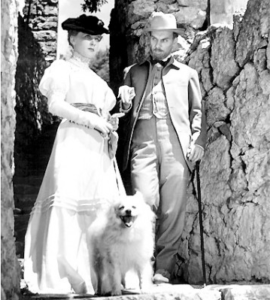 it is still magically evocative, and so very true to Chekhov’s story as I soon discovered. For it was the film that introduced me to the writing, firstly in that old Penguin collection Lady with Lapdog and Other Stories. And I must have taken the now rather battered copy from the shelves most years since to re-read a story or two, though most often by far that title story again.
it is still magically evocative, and so very true to Chekhov’s story as I soon discovered. For it was the film that introduced me to the writing, firstly in that old Penguin collection Lady with Lapdog and Other Stories. And I must have taken the now rather battered copy from the shelves most years since to re-read a story or two, though most often by far that title story again.
That book led to other collections of Chekhov stories, and eventually to the plays. One of the great theatre experiences of my life was seeing a touring production of Three Sisters in Aberystwyth when we were living there. The staging and acting — I think originating from Theatr Clwyd — were brilliant. But what made the atmosphere in the theatre so intense was that so many of the audience there really did dream of going to Moscow, to Moscow. Or at least away from that remote part of Wales. There is a Chekhov story there …
The post Seven books: Anton Chekhov appeared first on Logic Matters.



